US National Security Chief To Visit Israel, Discuss Iran
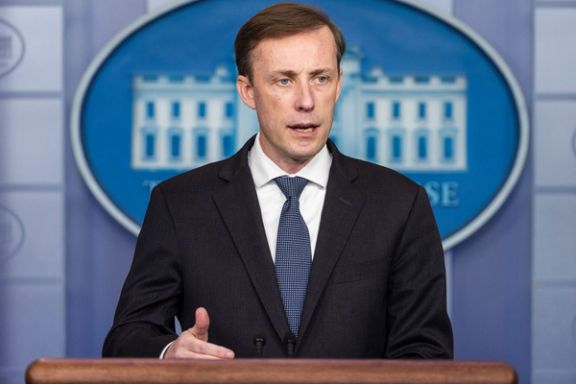
US national security adviser Jake Sullivan is scheduled to visit Israel and the West Bank this week to consult on Iran as well as a wide range of other issues.

US national security adviser Jake Sullivan is scheduled to visit Israel and the West Bank this week to consult on Iran as well as a wide range of other issues.
According to the White House on Monday, Sullivan will meet with Prime Minister Naftali Bennett while in Israel and is also going to visit Ramallah for talks with Palestinian Authority President Mahmoud Abbas.
Deputy Assistant to President Joe Biden and Middle East and North Africa Coordinator Brett McGurk and the State Department’s Acting Assistant Secretary for Near Eastern Affairs Yael Lempert will accompany Sullivan in his trip.
According to the statement by the White House, Sullivan will also co-chair the fourth Strategic Consultative Group (SCG) with his Israeli counterpart Eyal Hulata, covering a year of extraordinary engagement between their inter-agencies on a range of national security matters.
While the talks between Iran and world powers aimed at reviving the 2015 Iran nuclear deal have adjourned after making no progress, Sullivan will reaffirm the US commitment to Israel’s security and “consult on a range of issues, including the threat posed by Iran”.
In Ramallah, Sullivan plans to discuss the ongoing efforts to strengthen US-Palestinian ties and advance peace and security for Palestinians and Israelis alike, read the statement.
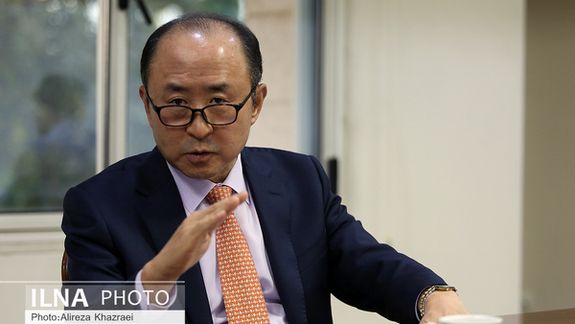
In an interview with an Iranian website published Monday, South Korean ambassador Yun Kang-hyeo said US sanctions on Iran have harmed his country’s economy.
Yun told the Iranian Labour News Agency (ILNA) his country had suffered more than any − other than Iran itself − from ‘maximum pressure,’ under which the US threatens punitive action against anyone buying Iran’s oil or dealing with its financial sector.
ILNA said the interview took place a month ago but gave no reason for the delay in publishing the story.
Yun criticized the US 2018 withdrawal from the 2015 Iran nuclear deal and its imposition of unilateral sanctions, but argued Seoul had no choice but to comply. South Korean banks hold around $7 billion owed to Iran that they are not transferring for fear of US punishment.Most is for oil imports, as South Korea was among the main buyers of Iran's crude oil before 2018.
South Korea was among the top buyers of Iran's crude oil before President Donald Trump unilaterally withdrew the US from the 2015 nuclear agreement between Iran and world powers, Joint Comprehensive Plan of Action (JCPOA).
South Korea's petrochemical industries and refineries have faced difficulties due to the break in oil imports, Yun told ILNA, as they had been geared to process the type of crude bought from Iran and had struggled to find alternatives. Yun said Korea was importing oil from Qatar, ironically from a field jointly owned by Qatar and Iran, at a higher price.
Freezing the assets has soured Tehran's relations with Seoul. Iran detained a South Korean tanker and its crew in the Persian Gulf in January 2020, on grounds of environmental violations as the cause. The vessel was freed in April without the release of Iran’s assets.
After a letter from Iran's Supreme Leader Ali Khamenei September 6, President Ebrahim Raisi (Raeesi) barred imports from South Korea’s LG and Samsung, referred to by Khamenei as "two South Korean companies." While the leader referred to boosting local manufacturers, state media also saw the move as a diplomatic message.
LG and Samsung had reportedly stopped trade with Iran in 2018 despite Iran’s warning that it would be difficult for them to return once US sanctions ended. The Korean firms had previously strong sales in Iran, including partnerships with Iranian companies that assembled goods like air conditioners and televisions.
Yun told ILNA that an Iranian home-appliances manufacturer, Snowa, wanted a ban on South Korean imports but that he had urged company officials to extend cooperation with companies such as LG and Samsung. "The director of Snowa welcomed my suggestion and we proposed to find a good way to cooperate," Yun noted.
In early November some Iranian media, including Javan newspaper, which is affiliated to the Revolutionary Guards, criticized the Korean ambassador overhis visit to a private hospital to donate 2,000 Covid masks. The newspaper wrote that Seoul should instead free Iran’s billions and called Yun’s action “cheap and shameless.”
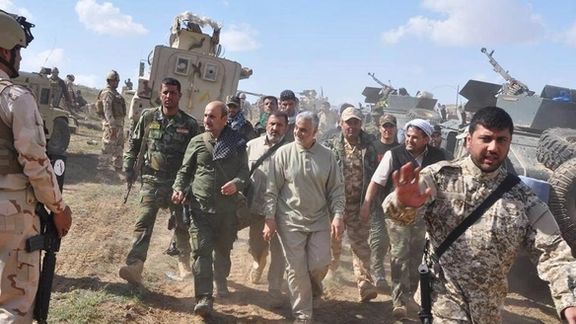
A top Israeli intelligence official has confirmed his country’s role in the assassination of Iranian Quds Force commander Qasem Soleimani last year.
The former head of Military Intelligence, Major-General Tamir Hayman, disclosed the information in an interview with an Israeli magazine.
Soleimani was killed in a targeted US drone strike as he arrived at Baghdad airport on January 3, 2020.
A few days after he was killed, NBC News reported that Israeli intelligence helped the US through its informants at the Damascus airport who tipped off the CIA about the time Soleimani's plane took off for Baghdad.
Another report published in Mayhad said that Israel gave the US access to Soleimani’s multiple cellphone numbers to help track him, but no top official had acknowledged Israel’s role before.
“The assassination of Soleimani was an achievement since our main enemy, in my eyes, is Iran,” Hayman said. “It is rare to locate someone so senior who is also the operator on the ground, the strategist and the fighter.”
He added that Israel has carried out multiple operations to disrupt the spread of Iranian weapons and funds throughout the region but described Soleimani’s killing as one of “two significant and important assassinations” during his tenure, the other being Islamic Jihad leader Baha Abu al-Ata.
“We thwarted a lot of ways they tried to smuggle weapons and money and the headline of all of this is stopping the Iranians from entrenching themselves in Syria,” he said.
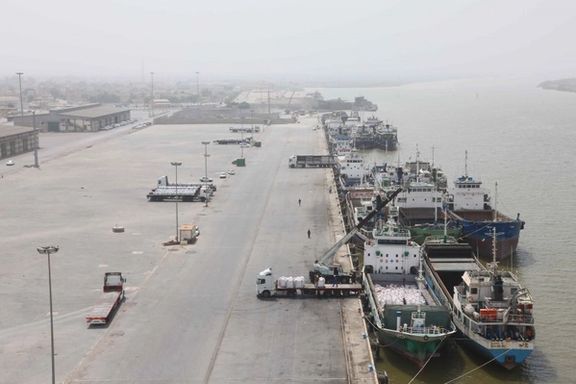
The head of Iran-Kuwait Joint Chamber of Commerce in Tehran says Kuwait has stopped issuing visas for Iranian businesspeople.
Hani Feysali made the remarks in an interview on Monday, clarifying that the Iranian traders who are still doing business with Kuwait are those who have already been residents there.
He added that trade ties between the two countries have dropped drastically, mentioning the covid-19 pandemic as one of the reasons behind the plunge.
Iran has been losing trade also as a result of US sanctions, which impose banking restrictions on Tehran.
According to official figures by the Iranian Customs Administration, exports to Kuwait in the first eight months of the Iranian calendar year (beginning March 21) was over $90 million. The amount of Iran’s annual exports was $190 million two years ago before the coronavirus hit the world.
Feysali had earlier said that due to Iran’s weak diplomacy, bilateral trade has been recording a downward trend in recent years as its total volume fell from $400 million in 2020 to $18 million last year.
Most trade between Iran and Kuwait is through Khorramshahr and Abadan ports. Foodstuff and construction products such as cement and plaster constitute most of Iran’s exports.
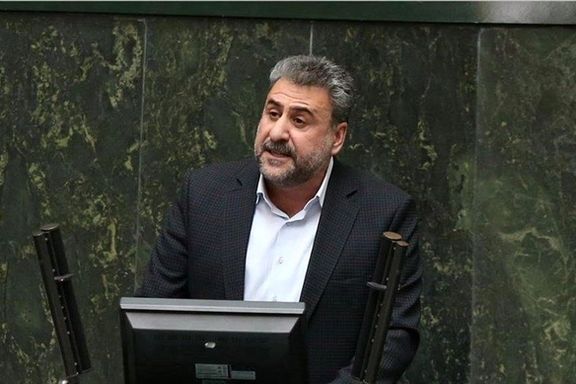
A former senior Iranian lawmaker has said that by repeated foreign policy mistakes for 40 years Tehran has lost many opportunities and has isolated itself.
Heshmatollah Falahatpisheh, former chairman of parliament’s National Security and Foreign Policy Committee, in an interview with Iran Diplomacy in Tehran has said that the Islamic Republic has a habit of persisting in its mistakes until it is forced to retreat, paying a high price each time.
As an example, the former lawmaker mentioned Tehran’s decision last week to “voluntarily” cooperate with UN’s nuclear watchdog, the International Atomic Energy Agency (IAEA) and allow it to install new cameras at a nuclear workshop that it refused to permit for months. Once world powers began discussing the issue at the UN Security Council, suddenly President Ebrahim Raisi’s government retreated and announced its willingness to cooperate, Falahatpisheh said, adding that he does not believe for a moment this was a voluntary decision. It was simply the specter of the Security Council that forced Iran to cooperate.
“Tehran, with its wrong decisions opens the door to its own isolation by losing opportunities that other countries…grab,” Falhatpisheh said. In four decades, the Islamic Republic has still not learned that by “piling crisis upon crises” it cannot solve any of them, he said. “We still witness wrong and costly decisions.”
Falahatpisheh, as is customary in public discourse of politicians in Iran, also attacked Israel, calling it a “destructive power”, along with “some Persian Gulf states”.
In order to be able to criticize the government, public figures in their discourse usually attack Israel, the United States and any other country on Islamic Republic’s blacklist at a given moment.
As Iran’s economic crisis has worsened, more public figures have come out criticizing the Raisi administration’s foreign policy, particularly its strategy in the Vienna nuclear talks. Pundits can often get away with targeting the government, but no one would dare to mention Supreme Leader Ali Khamenei, who is the real foreign policy decision maker.
Falahatpisheh argued that Iran’s nuclear issue has only three sides: Iran, The United States and the IAEA. All the rest, including the European troika, China, Russia and side players like Israel and some Arab sates have entered the fray because of Iran’s wrong policies. He added that Iran’s mistake of “sticking to its taboo”, rejecting direct negotiations with the United States has only complicated the situation and allowed others to try to take advantage for their own interests.
The former influential lawmaker, who is not considered a reformist, maintained that if Iran reaches an agreement with the United States and restores the 2015 nuclear deal (JCPOA), “Israel will face isolation” if it attacks Iran.
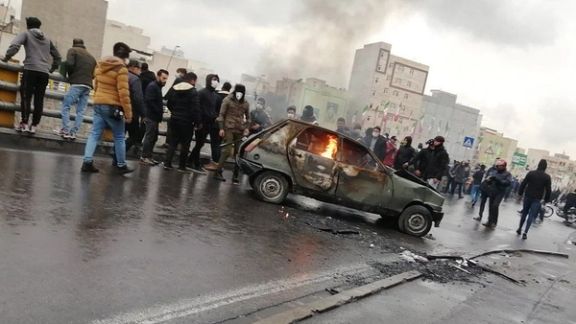
Iran plans to increase gasoline prices in its free economic zones as a test to have better control over the possible consequences of a potentially risky move.
The chairman of the Energy Committee of Iran’s parliament, Fereydoun Abbasi, said on Monday that Kish and Qeshm free economic zones are suitable places to test the plan, to prevent the repeat of the 2019 widespread bloody protests.
In November 2019 a sudden increase in fuel prices led to immediate protests that turned into anti-regime unrest, with security forces killing hundreds of people.
Abbasi, who is the former head of Iran’s nuclear agency, added that for any energy policy to work, it must be tested in a smaller scale, and should be thoroughly examined, considering the realities of peoples’ lives, before scaling up to the national level.
“We need to compare people's incomes with their expenses. People in our society should not be malnourished,” he said
Struggling economically due to stiff sanctions and meager oil exports, the Islamic Republic cannot continue to provide heavily subsidized fuel and electricity, which are the cheapest in the world in par with Venezuela.
At the same time the government is fearful of mass protests by citizens who have become poorer in the past few years.